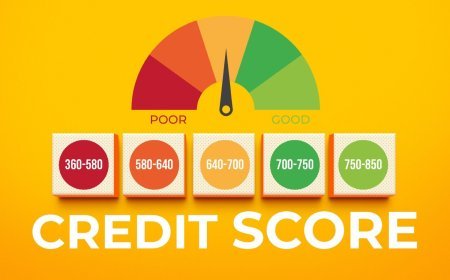The Hidden Risks of Cosigning a Loan: What You Need to Know Before Signing
Discover the potential pitfalls and financial consequences of cosigning a loan, including how it can impact your credit, relationships, and long-term financial stability. This article explores key risks and provides insights to help you make informed decisions in personal finance.

In personal finance, cosigning a loan to help a friend or family member might seem like a kind gesture. However, this decision can lead to significant financial challenges. Cosigning means you're legally obligated to repay the debt if the primary borrower cannot, and the risks often outweigh the benefits. Below, we explore the key dangers of cosigning, supported by real-world implications and expert advice, to help you make informed choices.
1. Credit Score Impact: A Serious Concern
Cosigning can significantly affect your credit score. When you cosign, the loan appears on your credit report as if it were your own debt. If the primary borrower misses payments or defaults, those negative marks will harm your credit history. According to credit bureaus like Equifax and TransUnion, late payments can lower your score by up to 100 points or more, affecting your ability to secure future loans, mortgages, or even certain jobs.
For example, if you cosign a car loan for a relative and they fall behind on payments, creditors may pursue you, and your credit utilization ratio could increase, signaling higher risk to lenders. Repairing this damage can take years and may require credit counseling or dispute processes, which are both time-consuming and costly.
2. Full Financial Responsibility Without Control
As a cosigner, you’re equally responsible for the entire loan amount, not just a backup. Lenders may pursue cosigners first because they often have stronger credit profiles. This means you could be liable for thousands of dollars without any control over how the borrower manages the funds.
The Consumer Financial Protection Bureau (CFPB) notes that in cases of default, cosigners may face wage garnishment, asset liens, or significant financial strain. Unlike the primary borrower, you don’t benefit from the loan’s purpose (e.g., no car or home in your name), yet you bear the full repayment burden. This imbalance has led to many cases of depleted savings or financial hardship.
3. Strained Personal Relationships
Money can complicate relationships, and cosigning often amplifies this issue. What begins as a favor can lead to tension if the borrower struggles financially. Disputes over missed payments or collection calls are common and can escalate to lasting conflicts.
Studies from the American Psychological Association on financial stress highlight how debt-related issues can cause emotional strain. Before cosigning, consider the relational impact: Is helping worth the potential strain on your bond?
4. Reduced Borrowing Power for Yourself
Cosigning increases your debt-to-income (DTI) ratio, a key factor lenders use to evaluate your eligibility for new credit. Even if payments are made on time, the loan balance counts against you, potentially limiting your access to favorable rates on mortgages, credit cards, or business loans.
For instance, if you’re planning to buy a home, a cosigned student loan could push your DTI above the 43% threshold recommended by Fannie Mae, delaying major financial goals. This restriction is often overlooked until it impacts your plans.
5. Challenges Removing Yourself as Cosigner
Once you’ve cosigned, it’s difficult to step away. Most lenders require the primary borrower to refinance the loan in their name alone, which depends on their improved credit and income—often the reason they needed a cosigner initially. If refinancing isn’t possible, you remain liable until the loan is fully repaid, which could take decades for mortgages or student loans.
Some lenders offer cosigner release options after a set number of on-time payments (typically 12-48 months), but these are not guaranteed and vary by lender. Always review the loan terms carefully to understand your obligations.
Alternatives to Cosigning: Safer Ways to Help
Instead of cosigning, consider these safer options:
- Gift Money: If possible, provide a cash gift for a down payment to avoid debt involvement.
- Co-Borrowing with Equity: For assets like homes, consider co-ownership to share risks and benefits.
- Financial Education: Help the borrower build credit through secured credit cards or budgeting tools.
- Lender Referrals: Recommend lenders specializing in bad-credit loans, which may have higher rates but keep you uninvolved.
Final Thoughts: Proceed with Caution
Cosigning a loan is a significant commitment that requires careful consideration. Evaluate the risks against your financial stability and relationships. Use tools like credit simulators or consult a financial advisor to understand potential outcomes. If you’re already a cosigner facing challenges, nonprofit credit counseling services can offer guidance.
By understanding these risks, you can avoid common pitfalls and protect your financial future. Make informed decisions to achieve true financial mastery while supporting others responsibly.
What's Your Reaction?
 Like
0
Like
0
 Dislike
0
Dislike
0
 Love
0
Love
0
 Funny
0
Funny
0
 Angry
0
Angry
0
 Sad
0
Sad
0
 Wow
0
Wow
0












































